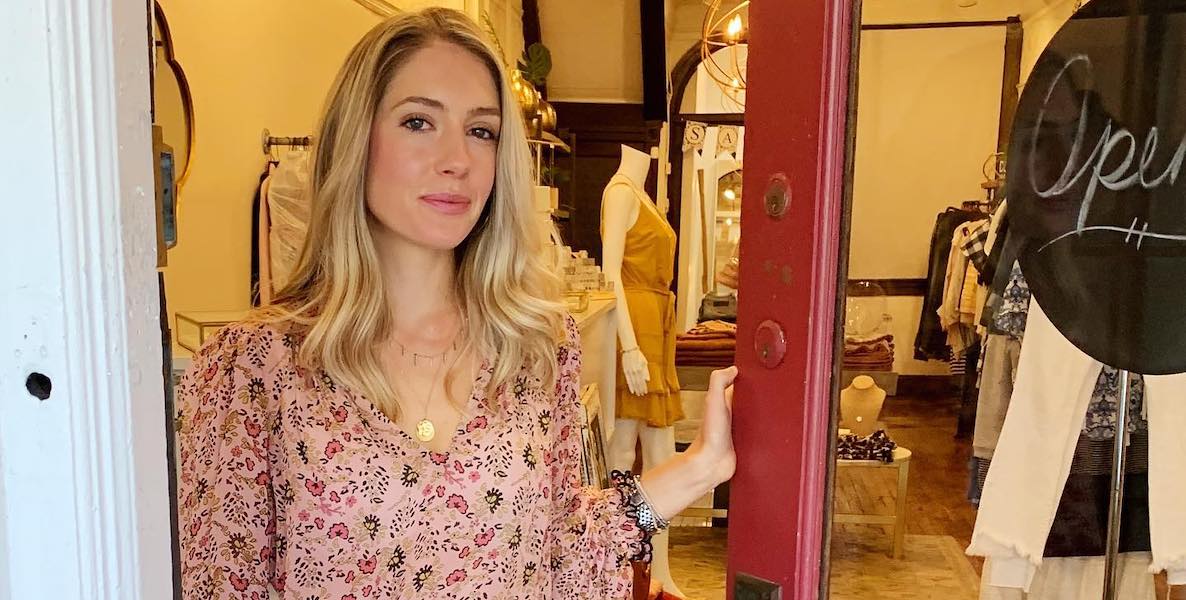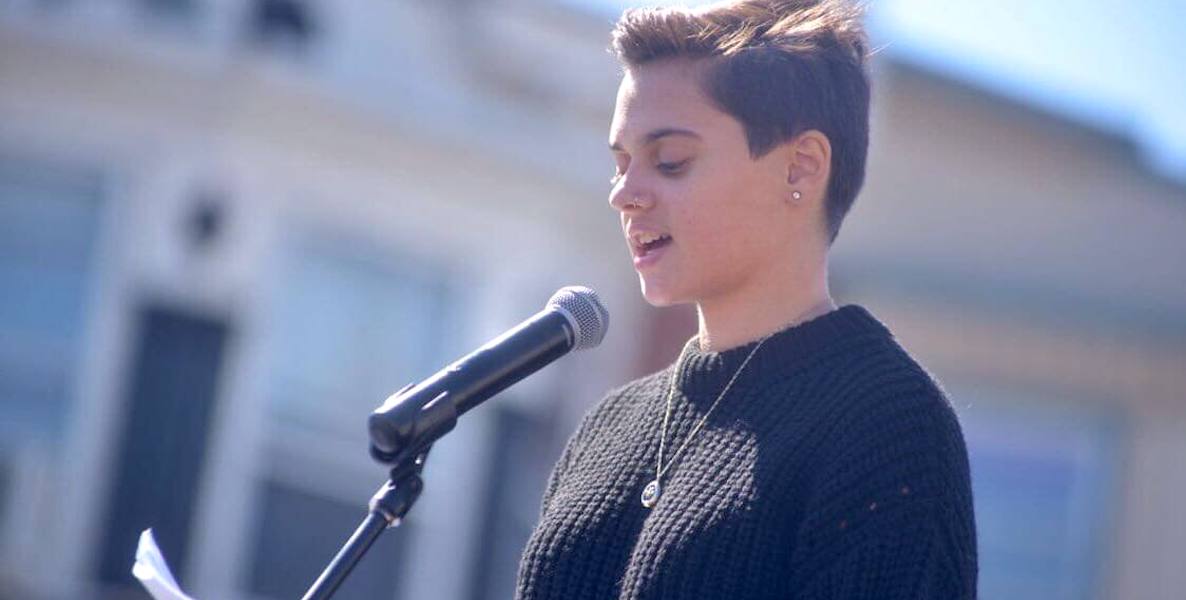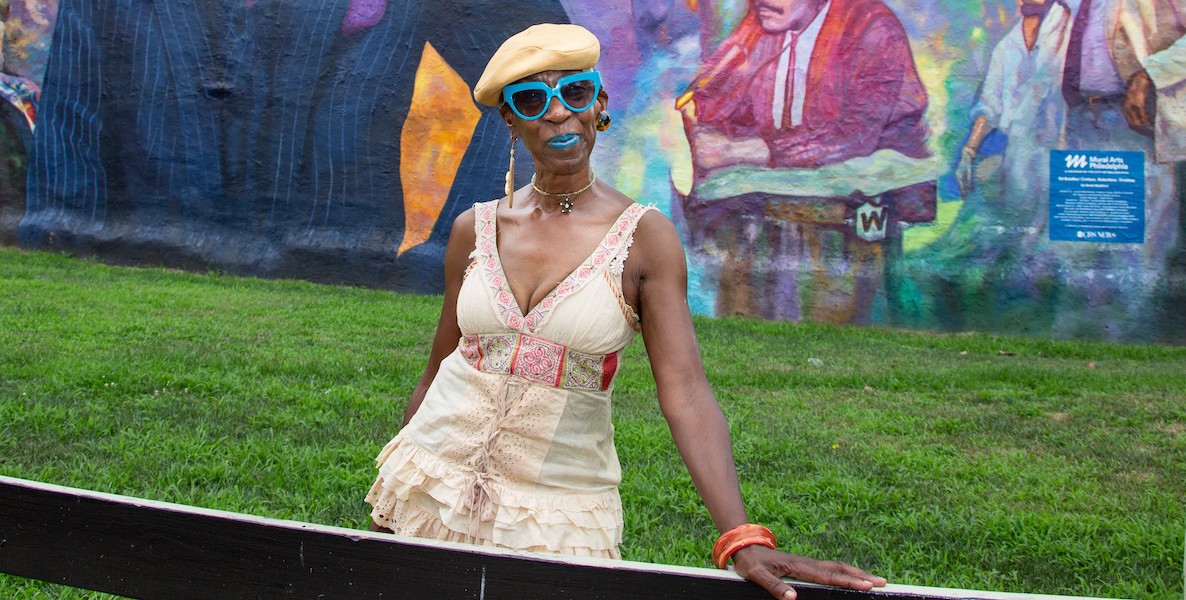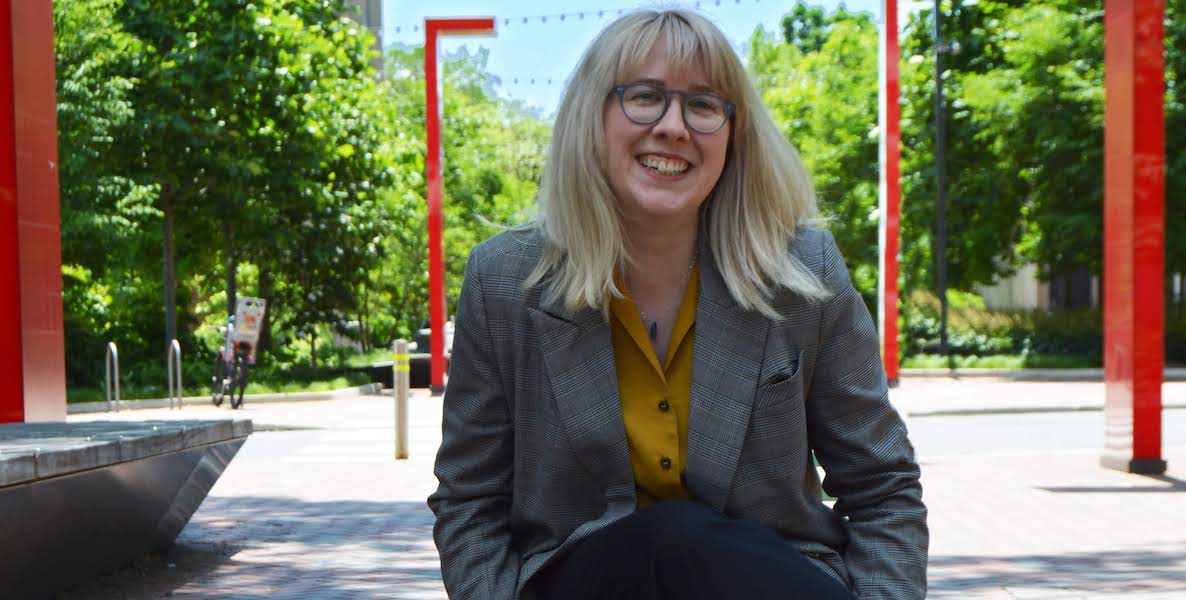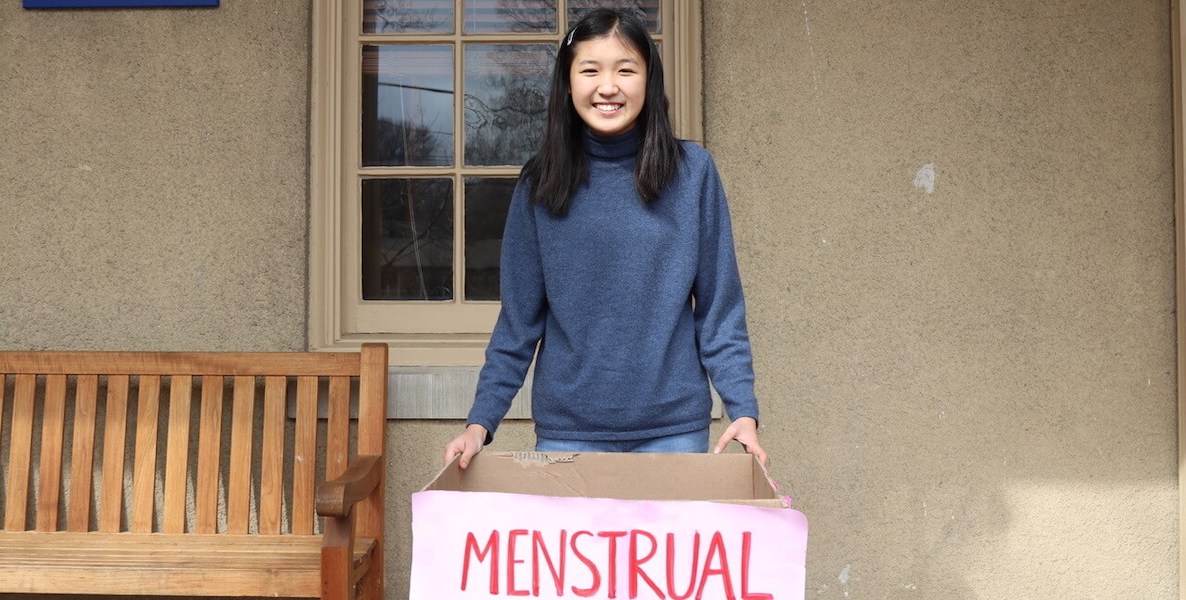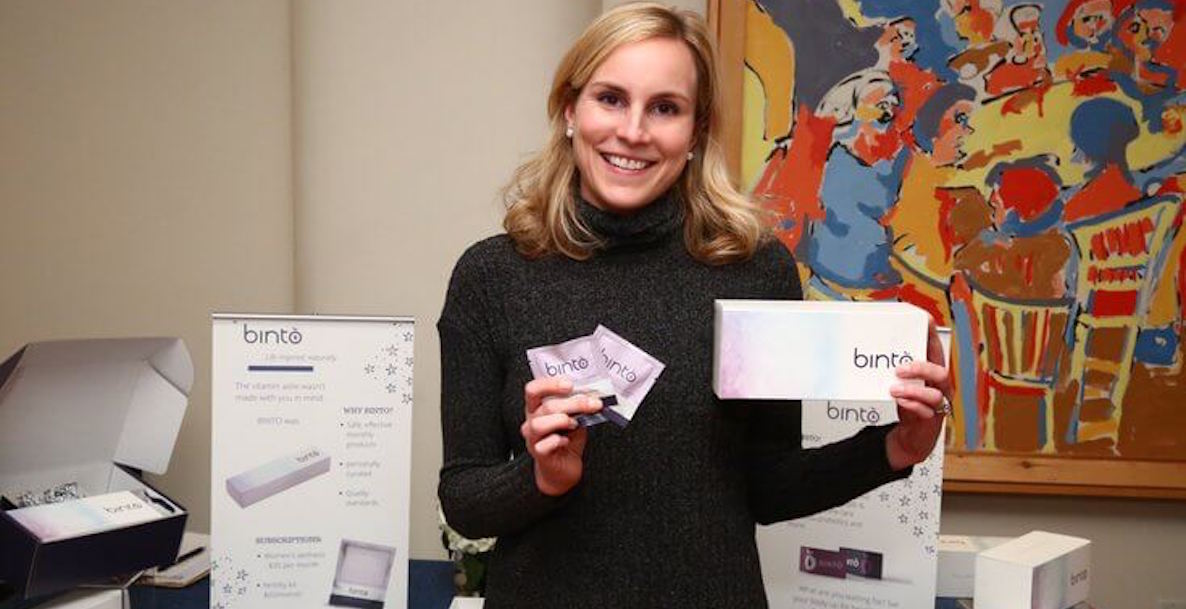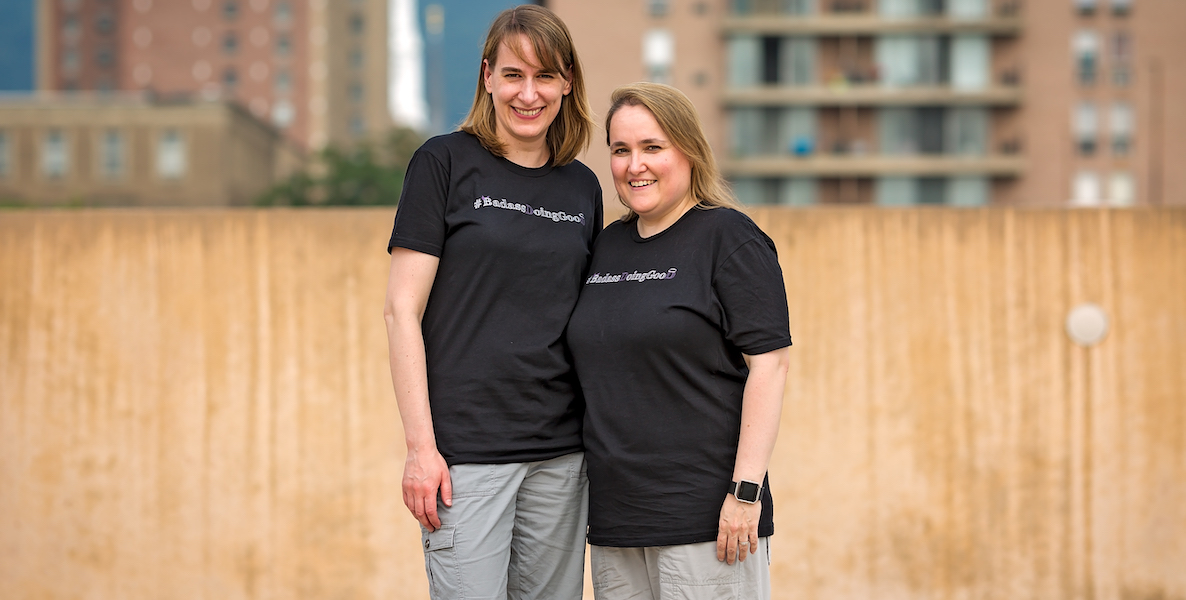In countries around the world, two out of three girls may miss school, simply because they get their period. They lack access to information about the normal, healthy biological process, and they have limited access to hygiene products.
In the U.S. and in Philly, too, the latter problem exists: Girls and homeless women, in particular, are plagued by lack of access to essential products like pads and tampons.
Joanna Lin, a sophomore at the Germantown Friends School (GFS), didn’t understand much about this phenomenon, widely referred to as “period poverty,” until one day last fall when she was scouring YouTube and came across a short video about it.
She dug further into the research, and learned that period stigma begins when girls are young, and that period poverty affects girls and women from Bangladesh to Broad Street. Even more upsetting, when homeless women are forced to choose between buying essentials, like food, and menstrual products, they often resort to using old socks, makeup pads, or plastic bags as substitutes.
“It’s baffling,” says Lin, an Upper Dublin native and 2020 recipient of Prudential’s Spirit of Excellence Award and the President Volunteer Service Award. “I was revolted by the fact that this is a choice they actually have to make.”
![]() According to a recent study by Thinx & PERIOD, more than 84 percent of teens in the U.S. “have either missed class time or know someone who missed class time because they did not have access to period products.” Period poverty is more prolific and widespread than many recognize, targeting women in cities and suburbs, young and old, liberal and conservative.
According to a recent study by Thinx & PERIOD, more than 84 percent of teens in the U.S. “have either missed class time or know someone who missed class time because they did not have access to period products.” Period poverty is more prolific and widespread than many recognize, targeting women in cities and suburbs, young and old, liberal and conservative.
Spurred to action, Lin set out to create an initiative that she decided to call “The Student Period Movement…dedicated to providing and supporting menstrual hygiene.” The group focuses on hosting statewide drives for menstrual product donations, and raising awareness about period poverty and menstrual inequity.
“[We want] to end the current stigma surrounding menstruation today, support menstruators in need, and educate upcoming generations on what menstruation truly is,” Lin explains.
The current Student Period Movement team includes 19 teenage boys and girls from around the state collaborating on teams: outreach, social, finance and state engagement, and they’re working on appointing even more student leaders from around the state.
The movement comes on the heels of increased attention to the issue: Last year, Penn student Claire Sliney won an Academy Award for her work as an executive producer on the documentary Period. End of Sentence., about rampant period poverty in India. And this year, Scotland could become the first country to make all menstrual products free.
There may be increased awareness, but there’s still so much more work to be ![]() done. And so as Lin began work on the initiative’s concept, she decided, like any good gen-Zer, to create an Instagram, and enlisted the help of Katie Lu, a sophomore at Wissahickon High School.
done. And so as Lin began work on the initiative’s concept, she decided, like any good gen-Zer, to create an Instagram, and enlisted the help of Katie Lu, a sophomore at Wissahickon High School.
Now, the movement’s social page is filled with graphics and brief informational messages in shades ranging from sangria to salmon. One poignant post displays the quote “end the stigma of our bodies” stitched onto the back pockets of someone’s jeans.
In February, the movement conducted its first drive at GFS, which garnered 204 packaged menstrual products and over $308 in donations. “Seeing tangible results really allowed us to see that this is something that could work,” says Lin. “It was the little boost we needed.”
They planned to donate these goods to multiple centers, but because of recent Covid-19-related closures, they instead focused on one partner, Distributing Dignity, an organization co-founded by South Jersey’s Joanie Balderstone and Rebecca McIntire; the products were allocated to various programs, like homeless shelters, that deal with women’s health.
“I hate to think that there are young women missing out on a critical part of their education because they can’t get access to pads or tampons,” says Balderstone. She and McIntire emphasize that the programs in need of menstrual products from drives and donations “have limited resources, but unlimited needs.”
Lin says that the movement is currently focused on promoting early, co-ed period education, which will hopefully help alleviate the stigma that develops around periods as children grow older. She believes education is crucial, given that many people, for whom these products are easily accessible, don’t even see the problem. “[Students] are the ones that will recognize period poverty and change it for the upcoming generations,” she says.
The movement’s plans include running educational seminars at the Upper Dublin Community Center and hosting menstruation-themed literary events through the Friends Free Library.
Lin and Trish Le, a fellow GFS student and the movement’s outreach director, also hope to continue educating younger children on period stigma; they recently visited GFS middle school classrooms to spread their knowledge on the topic.
The movement has planned drives at Upper Dublin High School, Wissahickon High School, Friends Select School, and Abington Friends School, all of which will be held after coronavirus restrictions are lifted.
![]() Recently, Lin and the group interviewed Jen Lewis, creator of Beauty in Blood, as the first figure in the movement’s upcoming series “Menstrual Equity Leaders,” which will be featured on the website.
Recently, Lin and the group interviewed Jen Lewis, creator of Beauty in Blood, as the first figure in the movement’s upcoming series “Menstrual Equity Leaders,” which will be featured on the website.
They’ve also scheduled a video call with Senator Maria Collett, who proposed a 2019 bill to make menstrual products easily accessible in public buildings, about providing menstrual products in all schools around Philly.
In the future, the movement hopes to partner with more state senators and representatives to move that cause forward.
As part of the CARES Act that Congress passed last month to help Americans financially hit by Covid-19, women can finally use their flexible spending accounts to buy feminine products—something women’s rights activists have been working to secure for years.
But in a state—ours—where the “Menstrual Equity Act” to provide menstrual products in public spaces is still pending in local government, organizations like the Student Period Movement are essential.
They’ll fight tirelessly to publicize the problems of menstrual inequity, and they welcome young activists to join them to educate others and advocate for change.
Photo courtesy Daniel Liu


